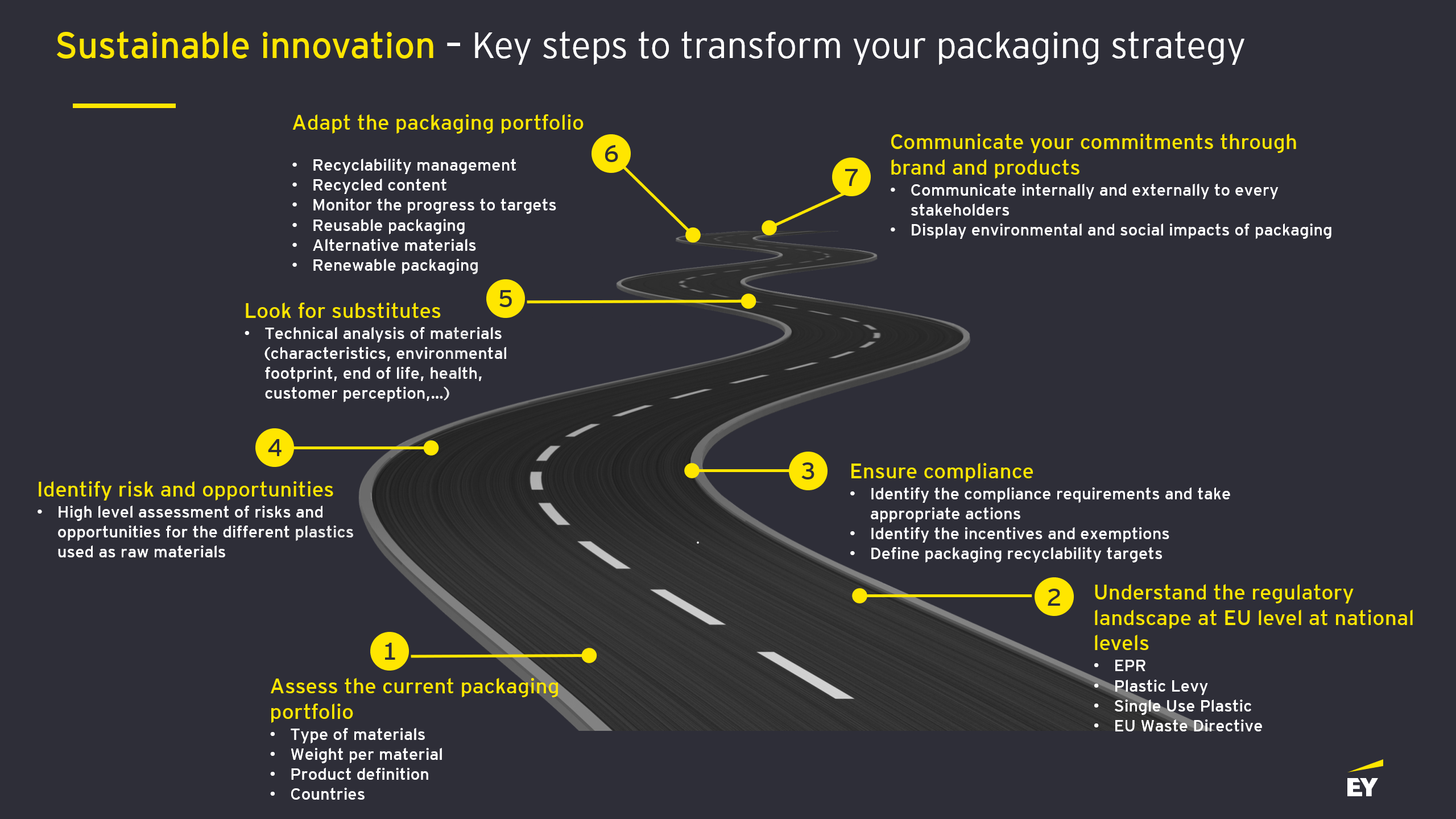EY refers to the global organization, and may refer to one or more, of the member firms of Ernst & Young Global Limited, each of which is a separate legal entity. Ernst & Young Global Limited, a UK company limited by guarantee, does not provide services to clients.
Packaging Compliance and Sustainable Packaging Strategy
What EY can do for you
In the current fast moving legislative landscape, it is more important than ever to pay attention to your packaging strategy. In the last years, there have been many changes in EU legislation regarding packaging obligations and therefore a thorough compliance check is required.
With a variety of legal requirements and the complexity due to national differences rethinking your packaging strategy is becoming increasingly important. These legal requirements may include the Extended Producer Responsibility (EPR), marking requirements, Single-Use Plastics (SUP), plastic taxes or food contact materials. Additionally, these packaging legislations differ greatly per country within the EU in terms of rules (e.g. marking requirements) or the allocation of responsibilities and costs.
Understanding compliance restrictions and associated risks can be a first step to rethink your packaging strategy. With an improved packaging strategy and the integration of eco-design criteria, you can significantly reduce carbon emissions along your value chain for both your own organization and for your customers (scope 1,2 and 3) as well as limit your financial contributions related to packaging waste.
Our expertise is particularly – but not exclusively - appreciated for the fast-moving consumer goods sector where legislation and market demand are important for packaging.
Our team helps businesses to overcome their packaging challenges using a three-pillar methodology:




